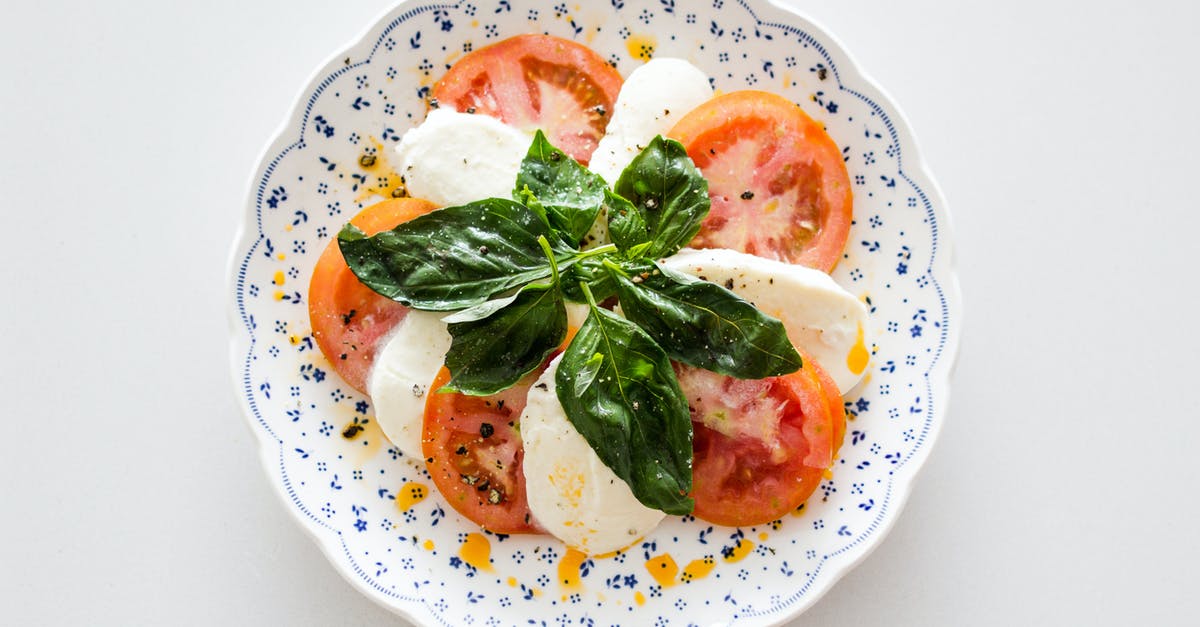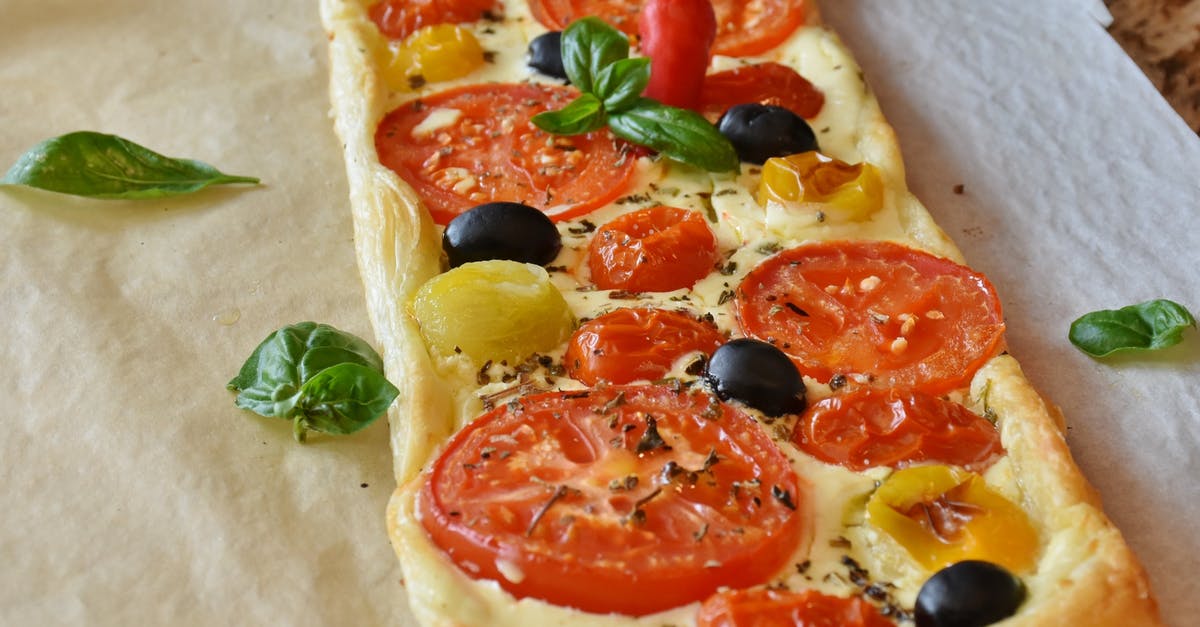How to tell if cheese is vegetarian?

I do not eat farmed animals, including animal rennet, which is used in making many kinds of cheese. Cheeses here in the U.S. vary in what they use as curdling agent and I have seen the following labels listed in ingredients:
- Animal Rennet
- Rennet
- Microbial Rennet
- Cheese Cultures (does this mean animal rennet?)
- Vegetarian Rennet
Unless the ingredient list makes is explicit that it is of animal origin, such as the first or probably the second bullet point above, is there any way to guess which origin the Cheese Cultures connotes? Is there a special marking on the product (like a kosher label) that denotes that it is safe for consumption by non-meat eaters?
Best Answer
Unfortunately, as you suggest, this is tricky. The short answer is: if it's labeled "vegetarian rennet," "vegetable rennet," or "microbial rennet," it is probably, but not necessarily, vegetarian. Otherwise, it is probably not vegetarian.
If you're willing to substitute different "cheeses:" Consider cheese types (or cheese-like products) made without rennet in the first place, such as acid-set cheeses or bacterially-cultured cheeses, like quark, cream cheese, queso blanco, paneer, certain types of ricotta, crème fraîche, marscarpone, etc. Clearly some of those are more traditional "cheeses" than others.
As for more mainstream cheeses: There are various guides, such as this one from The Vegetarian Society with a little more detail, including nuggets like that proper Parmesan (Parmigiano-Reggiano) cheese is never vegetarian -- i.e., DOP/PDO certification guidelines specify the use of calf rennet. Whey cheeses like mysost or traditional ricotta are also unlikely to be rennet-free, because the whey used is often a by-product of "conventionally" processed cheese.
Some places around the world have better markings; e.g., in India there is the vegetarian mark, which is required on certain packaged foods. In the US, for instance, there is no federal, legal definition of "vegetarian," though there are now some certification bodies (akin to Kosher or Organic) as noted in this Vegetarian Resource Group article. Other companies and markets have their own hieroglyphics (e.g., vegetarian, vegan, gluten-free, low-sodium, ...), but they're not always clear nor are they standardized.
A couple other sites have guidance, such as Vegetarian Times, or lists such as Joyous Living.
For completeness: Make sure to understand the source of microbial rennet to make sure you're okay with the possible sources, but this wasn't really your question. Similar problems exist for determining the vegetarian-suitability of "natural flavours" or other additives, but that's a different question also!
Pictures about "How to tell if cheese is vegetarian?"



Quick Answer about "How to tell if cheese is vegetarian?"
Put simply: Any cheese containing "rennet" or "animal enzymes" to aid in coagulation—aka to separate milk into solid curds—is not vegetarian.What cheeses are vegetarian?
Some popular brands that sell vegetarian-friendly cheeses include Organic Valley, Bel Gioioso, Cabot, Applegate, Tillamook, Amy's, Laughing Cow, and Horizon. Most importantly, just check the ingredient list of any cheese you can.How can you tell if rennet is vegetarian?
How Do I Find Out if My Cheese Is Vegetarian?What cheeses arent vegetarian?
Parmesan cheese uses rennet, an enzyme that's found in the lining of a goat or calf's stomach. Because cheeses like Parmesan, Pecorino Romano, Manchengo, Gruy\xe8re, Gorgonzola, and others use it, they aren't technically vegetarian.Do all cheeses have rennet?
Although Rennet is popular in the cheese industry, some cheeses don't require using Rennet. Most hard cheeses such as parmesan, cheddar, pecorino romano, and more come through Rennet. However, many kinds of cheese such as cream cheese, Ricotta, swiss Cheese, provolone, and more don't need Rennet.Top 10 “Vegetarian” Foods Which Aren’t Actually Vegetarian
More answers regarding how to tell if cheese is vegetarian?
Answer 2
Checking for kosher-dairy markings can be helpful because it should not be permitted to have any meat products in it (except kosher fish which are not considered to be meat according to kosher food rules). The problem with this is that it is a very old religious rule which means there are multiple interpretations and no legal definition.
You first need to check what the rules are for the kosher certifying group whose marks you are relying on. Some groups are stricter than others, and some don't consider highly processed animal-sources chemicals to be meat anymore from aa religious perspective. I generally trust Orthodox Union, but they aren't the only good resource for vegetarians. You should read up on their standards and see if you agree with them, and try to figure out what group is certifying whatever cheeses you're considering.
Answer 3
You seem to be under some misunderstanding. The cultures are just the micro organism that feeds on the sugars in the milk (Lactose) this provides the cheese with a certain amount of Lactic Acid which is basically where most of the strong flavours in cheese comes from. These things are just simple bacteria though and have little bearing on the vegetarian status of the cheese.
What does have an influence though is the rennet. This is what is often used to coagulate the milk. That is to say separate the whey from the curds. Traditional Rennet comes from Mammalian stomach linings and are therefore unsuitable for vegetarians.
There do exist alternatives though. There are plant, fungal and bacterial coagulants as well.
The most widespread non-animal coagulant used in the making of cheese comes from fermentation-produced chymosin. FPC is produced by injecting host bacteria with DNA extracted from calf cells. This makes the product a bacteria made through genetic modification.
The deal with this is that this type of coagulant is a lot less effective. It will almost always give a lower yield when producing cheese. It is also a lot more complicated to produce and just plain more expensive.
With this in mind you have to realise that if a cheese producer goes through the real effort to make these provisions in the production of there cheeses they simply are going to mention it.
The converse is also true if the cheese is not very expensive and the label only tells the word rennet assume it was the non vegetarian / traditional version. Look for an explicit indication of non animal rennet, vegetarian cheese or vegetarian rennet.
I commend you for taking your vegetarian lifestyle so seriously.
Answer 4
One of the essential ingredient of cheese is rennet. It comes from calf’s stomach and therefore unacceptable for vegetarians. However vegetarian rennet is becoming increasingly common. It is a non-animal product used in the making of vegetarian cheeses to aid in the coagulation process. So to find out whether the cheese is vegetarian or not check the label carefully and look for the source of rennet. You can also check the company website. If all else fails call the company/distributor and ask for information from the nutrition or development department.
Sources: Stack Exchange - This article follows the attribution requirements of Stack Exchange and is licensed under CC BY-SA 3.0.
Images: Tranmautritam, Sebastian Coman Photography, Pixabay, Engin Akyurt
